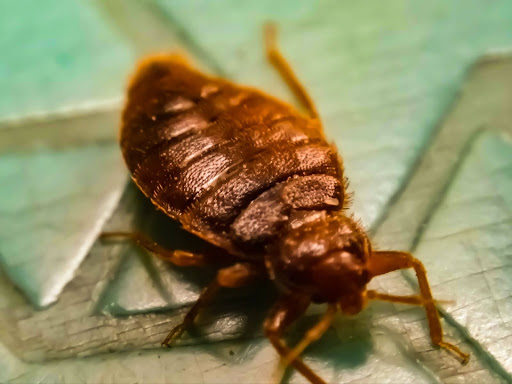Noticed an itchy bite and immediately worried about bed bugs? Bed bugs are notorious for their resilience and refusal to pack their microscopic bags, even when food (aka you) is off the menu.
But how long can bed bugs survive without feeding?
Unfortunately, it’s probably longer than you think. These pests have survival strategies that’ll leave you wondering if they are in fact immortal.
If you’re a resident of Northern Virginia or the DC Metro area dealing with an infestation or just trying to avoid one in the future, this post is for you. We’re uncovering the not-so-charming tactics that keep them alive without a midnight snack.
More importantly, we’ll tell you how Connor’s Pest Pros can help you take charge of your problem for good.
How Long Can Bed Bugs Survive Without Feeding?
Bed bugs are tiny, flat-bodied insects that thrive on blood—preferably human blood. But don’t be fooled, these freeloaders can live surprisingly long without a meal.
The average adult bed bug can manage anywhere from 20 days to over a year in the absence of blood. It all comes down to a few key factors like temperature, humidity, and how long they’ve been fed before their diet was rudely interrupted.
When the environment is favorable—say, a cozy 70 degrees Fahrenheit—they’ll manage to cruise through life without a meal for about two to three months.
Cooler conditions? They cue their superpower—hibernation mode—and stretch their survival game for close to a year. Baby bed bugs (or nymphs) are less hardy, needing sustenance more frequently. Still, they can manage weeks or even several months between meals, which is why they’re a pest that doesn’t disappear without serious intervention.
If you’re thinking, “how bad could it be if they go unfed?”, here’s the deal—it’s still very bad. These pests will lie dormant in cracks, mattress seams, and furniture in your home, waiting for their next buffet arrival.
Clever Survival Tactics That’ll Make Your Skin Crawl
How do bed bugs pull off their painfully long hunger strikes? It all comes down to a combination of biology, smarts, and downright stubbornness.
First, they conserve energy by remaining stationary when food gets scarce. Picture them in a cozy spot, taking a very long nap, and waiting for you to unknowingly say, “Welcome back to the buffet!” This way, they’re not running around wasting precious calories.
Their flat bodies make them the kings and queens of hide-and-seek as they wedge themselves into the tiniest, most unreachable nooks and crannies.
Then there’s their other sneaky habit—spreading out within your home. They don’t hover around only one room or wait patiently in your bed; instead, they take the liberty of moving to other living spaces, keeping the infestation alive and well-distributed around your home.
The cherry on top? These little vampires have developed resistance to some DIY toxins and sprays, making them particularly challenging to eliminate without professional-grade solutions.
The Restless Roommates You Didn’t Sign Up For
Of course, it’s not just about when bed bugs actively feed on you. Even when they’re in hiding, they continue to lay eggs.
A single female bed bug can lay 200–500 eggs in her lifetime, scattering the next generation of misery all around your once-peaceful home. These eggs can hatch in as few as six to ten days, which means their downtime without feeding doesn’t slow down their takeover plans for your home.
While you might think of other pests that show their faces during peak seasons, like mosquitoes in the summer or rodents in the winter, bed bugs are different. They’re indoor invaders that thrive all year round.
The longer you delay addressing them, the larger their colony grows, making your problem exponentially worse while they quietly plot their resurgence.
Why Professional Pest Control Is Your Only True Escape
You might be tempted to break out a can of pesticide or Google DIY remedies. But here’s where the truth hits hard—most home solutions are about as effective as asking the bed bugs politely to leave.
They’re stealthy, adaptive, and undeterred by weak attempts to evict them. That’s where professional exterminators like Connor’s Pest Pros step in as the heroes of this story.
Professional pest control technicians know the ins and outs of bed bug behavior, biology, and survival tactics. Forget the cartoon vision of spraying that miraculously clears every pest. Targeting bed bugs takes a multi-pronged approach—using heat treatments, chemical solutions, and tracking their hiding spots with surgical precision. We’ll eliminate active bugs, eggs, and make your space unattractive for any survivors hoping to reestablish the reign of terror.
Bed bugs can be disheartening, to say the least, but if you live in Northern Virginia or the DC Metro area, there’s reason to smile. Local pest control experts here, like our team at Connor’s Pest Pros, are well-acquainted with bed bug infestations common to urban and suburban homes and know what it takes to get them gone—once and for all.
Don’t Wait for the Moonlit Buffet, Act Now
So, how long can bed bugs survive without feeding? You now know that bed bugs are terrifyingly impressive survivalists. They can stick around for months—or even a year—without feeding, making them the uninvited house guests you’ll regret ignoring.
That’s why this isn’t just a problem you can sleep on (pun intended).
Connor’s Pest Pros offers unparalleled bed bug treatments tailored to your specific infestation. Say goodbye to sleepless nights and itchy mornings—schedule a free consultation today and reclaim your home from these pesky invaders.
Don’t give the bed bugs another minute to plot their next move. Contact Connor’s Pest Pros now and sleep peacefully once again.



